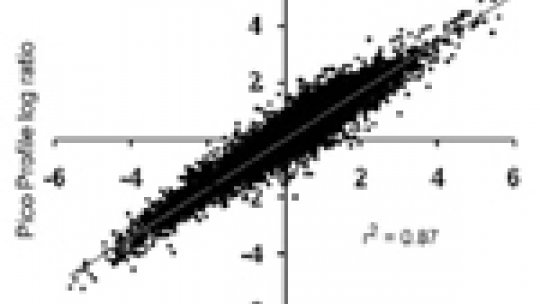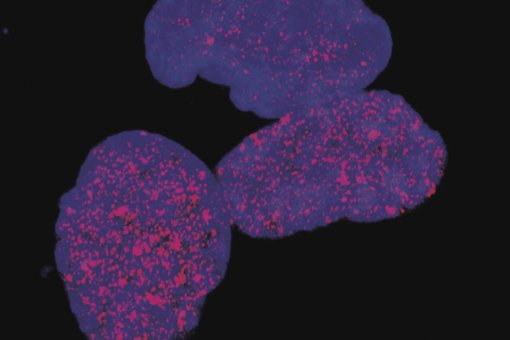Images
Contact

Researchers describe a new method for the gene expression analysis of cells with a low abundance in organisms.
Scientists at IRB Barcelona have developed a new technique, called “Pico Profiling”, that allows for the first time a reliable and comprehensive analysis of gene activity from very few cells. Headed by Herbert Auer, manager of the Functional Genomics Core Facility at IRB Barcelona, together with researchers from IRB Barcelona’s MetLab and The Ohio State University, the development of this technique will allow in-depth studies of cells that are difficult to obtain because of their scarcity. The study is published in PLoS ONE, an international journal that reports research from all disciplines within science and medicine.
Cells work by following the information held in their genes. Consequently, alterations in gene activity can trigger serious disturbances in cell function and can lead to disease. In-depth analysis of gene activity through global expression profiles is currently one of the most complete strategies for the study of cell function and behaviour during the development of a disease. While conventional expression analysis methods are efficient for many cell populations, they are limited by the fact that they call for millions of cells, a requirement that hinders the study of less common cells, such as metastatic, stem, and embryonic cells. “In the case of mouse hematopoietic stem cells (those that form blood cells), we would have to sacrifice hundreds of animals to have enough material for the gene expression profiling using conventional methods”, explains Auer.
In this study, researchers have developed a new expression profiling method that allows the study of only 10 cells or even individual cells, a number that is a million times less that than required by conventional methods. This new technique, which involves changes in the way how biological material is obtained and its later multiplication, provides reproducible and similar results to those produced by conventional methods, which use many more cells. “Several techniques using a small number of cells have been described for expression analyses, but we demonstrate that half of their results do not show what truly happens in nature”, says Auer.
One of the challenges in biomedicine is to achieve reliable information from infrequent cell populations. Auer’s technique allows, for the first time, an accurate study of gene expression of some of these rare cells, such as metastatic cells, which are responsible for 90% of the deaths from cancer.
Reference article:
Accurate expression profiling of very small cell populations
Eva Gonzalez-Roca, Xavier Garcia-Albéniz, Silvia Rodriguez-Mulero, Roger R. Gomis, Karl Kornacker, and Herbert Auer.
PLoS One (2010) [doi: 10.1371/journal.pone.0014418]
About IRB Barcelona
The Institute for Research in Biomedicine (IRB Barcelona) pursues a society free of disease. To this end, it conducts multidisciplinary research of excellence to cure cancer and other diseases linked to ageing. It establishes technology transfer agreements with the pharmaceutical industry and major hospitals to bring research results closer to society, and organises a range of science outreach activities to engage the public in an open dialogue. IRB Barcelona is an international centre that hosts 400 researchers and more than 30 nationalities. Recognised as a Severo Ochoa Centre of Excellence since 2011, IRB Barcelona is a CERCA centre and member of the Barcelona Institute of Science and Technology (BIST).




